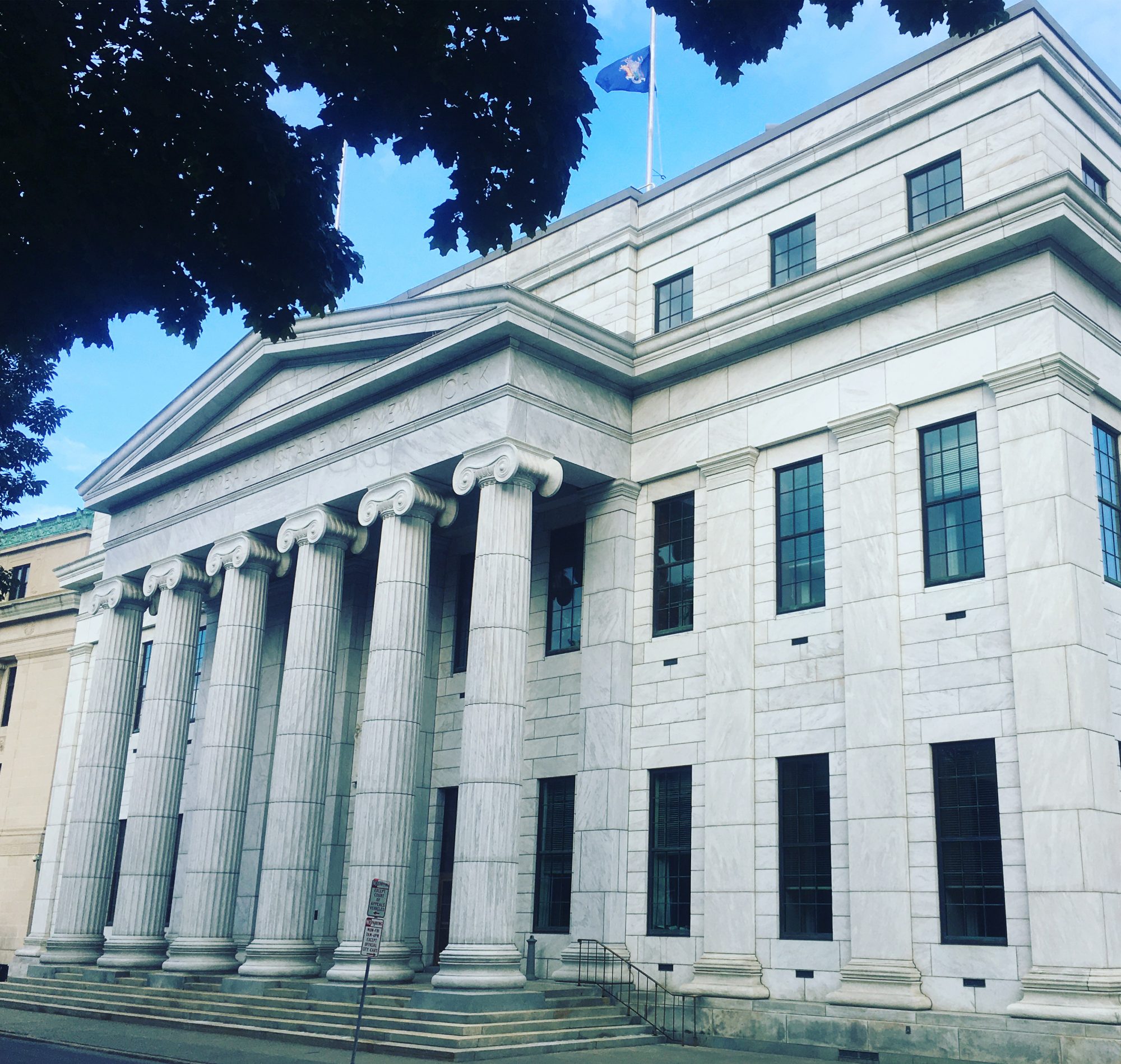In addition to leave grants from Appellate Division orders, the Court of Appeals also at times receives requests from the federal circuit courts and other state supreme courts to weigh in on issues of New York law pending in cases out of state. In particular, Court of Appeals rule 500.27(a) provides:
Whenever it appears to the Supreme Court of the United States, any United States Court of Appeals, or a court of last resort of any other state that determinative questions of New York law are involved in a case pending before that court for which no controlling precedent of the Court of Appeals exists, the court may certify the dispositive questions of law to the Court of Appeals.
22 NYCRR 500.27 (a)
The cases are heard on an expedited basis, with the whole appeal from acceptance of the certified question to the Court of Appeals’ decision usually taking only about 9 months.
In a normal year, the Court of Appeals generally accepts and decides 3-4 certified questions. In 2019, for example, the Court decided 3 certified questions, 2 accepted in 2018 and 1 accepted in 2019. The Court had also accepted 2 other certified questions in 2019 that hadn’t yet been decided by the end of the year. In 2018, the Court decided 2 certified questions, and in 2017, it decided 6 certified questions.
Here are a few of the cases that the Court of Appeals has been asked to hear this year:
CIT Bank N.A. v Pamela Schiffman, U.S. Court of Appeals for the Second Circuit, January 28, 2020
Certified questions:
(1) Where a foreclosure plaintiff seeks to establish compliance with RPAPL § 1304 through proof of a standard office mailing procedure, and the defendant both denies receipt and seeks to rebut the presumption of receipt by showing that the mailing procedure was not followed, what showing must the defendant make to render inadequate the plaintiff’s proof of compliance with § 1304?
(2) Where there are multiple borrowers on a single loan, does RPAPL § 1306 require that a lender’s filing include information about all borrowers, or does § 1306 require only that a lender’s filing include information about one borrower?
Brooklyn Center for Psychotherapy, Inc. v Philadelphia Indemnity Insurance Company, U.S. Court of Appeals for the Second Circuit, April 9, 2020
Certified question:
Must a general liability insurance carrier defend an insured in an action alleging discrimination under a failure-to-accommodate theory?
Simmons v Trans Express Inc., U.S. Court of Appeals for the Second Circuit, April 13, 2020
Certified question:
Under New York City Civil Court Act § 1808, what issue preclusion, claim preclusion, and/or res judicata effects, if any, does a small claims court’s prior judgment have on subsequent actions brought in other courts involving the same facts, issues, and/or parties? In particular, where a small claims court has rendered a judgment on a claim, does Section 1808 preclude a subsequent action involving a claim arising from the same transaction, occurrence, or employment relationship?
Ortiz v Ciox Health LLC, U.S. Court of Appeals for the Second Circuit, June 5, 2020
Certified question:
Does Section 18(2)(e) of the New York Public Health Law provide a private right of action for damages when a medical provider violates the provision limiting the reasonable charge for paper copies of medical records to $0.75 per page?
Adar Bays, LLC v GeneSYS ID, Inc., U.S. Court of Appeals for the Second Circuit, June 11, 2020
Certified questions:
(1) Whether a stock conversion option that permits a lender, in its sole discretion, to convert any outstanding balance to shares of stock at a fixed discount should be treated as interest for the purpose of determining whether the transaction violates N.Y. Penal Law § 190.40, the criminal usury law.
(2) If the interest charged on a loan is determined to be criminally usurious under N.Y. Penal Law § 190.40, whether the contract is void ab initio pursuant to N.Y. Gen. Oblig. Law § 5-511.
Fast Trak Investment Company, LLC v Sax, U.S. Court of Appeals for the Ninth Circuit, June 11, 2020
Certified questions:
(1) Whether a litigation financing agreement may qualify as a “loan” or a “cover for usury” where the obligation of repayment arises not only upon and from the client’s recovery of proceeds from such litigation but also upon and from the attorney’s fees the client’s lawyer may recover in unrelated litigation?
(2) If so, what are the appropriate consequences, if any, for the obligor to the party who financed the litigation, under agreements that are so qualified?
Ferreira v City of Binghamton, U.S. Court of Appeals for the Second Circuit, September 23, 2020
Certified question:
Does the “special duty” requirement—that, to sustain liability in negligence against a municipality, the plaintiff must show that the duty breached is greater than that owed to the public generally—apply to claims of injury inflicted through municipal negligence, or does it apply only when the municipality’s negligence lies in its failure to protect the plaintiff from an injury inflicted other than by a municipal employee?
